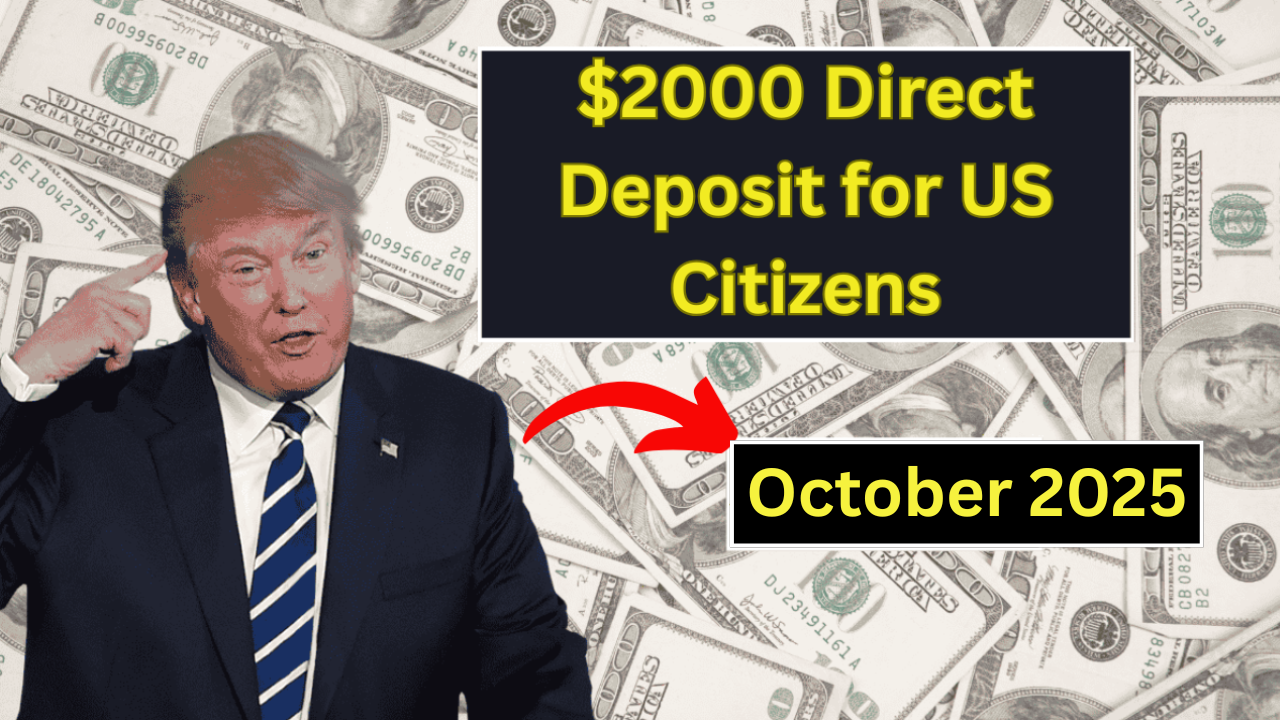$2,000 Stimulus Check:The same question is being asked repeatedly at kitchen tables, on social media, and in casual conversations: “Will we actually get a fourth stimulus check—$2,000 per person—and will everyone be eligible?” The idea seems simple: direct cash assistance to help people cope with rising prices. But the reality is much more complicated—and as of now, no, it’s not certain that everyone will receive this payment.
Rumor vs. Reality
Since 2020, stimulus checks—or “economic impact payments”—have been a recurring strategy to inject cash into the economy and help families through difficult times. But the three rounds already authorized (in 2020 and 2021) are long overdue.
Recent discussion has centered on a proposed “fourth stimulus check” of $2,000. This has made headlines in many places, but as of mid-2025, no legislation has been passed, and neither the IRS nor the U.S. Treasury has confirmed any new federal payments of this amount.
In short: $2,000 checks are still just a proposal and a rumor—not a guaranteed benefit.
Who could be eligible (if approved)
Supporters and analysts say that if a $2,000 check is approved, eligibility would likely be similar to previous stimulus programs. Some commonly mentioned eligibility criteria include:
- Single filers with an adjusted gross income (AGI) of up to $75,000
- Married couples filing jointly with an income of up to $150,000
- Head of household filers with an income of up to $112,500
- Additional amounts for children in the household
- Those who already receive federal benefits (Social Security, SSDI, SSI) may also be automatically included, as in previous programs.
But importantly, these are just estimates, not definitive rules. No legislation has been passed, so it’s not yet certain who will be eligible.
Why doesn’t everyone get this (even in the proposal)?
Even if Congress approves the $2,000 payment, there will almost certainly be some conditions and exclusions. This means:
- As income rises above a certain threshold, the payments received by higher-income individuals will decrease or cease altogether.
- Those who are listed as dependents on someone else’s tax return (such as children or students) may not receive the full payment.
- Under many proposals, non-citizens, individuals without a Social Security Number, or certain taxpayers may be ineligible for the payment.
- Due to budget constraints, the government often has to implement certain eligibility rules to control spending.
In previous relief packages, these kinds of rules were necessary to make the program both politically viable and economically sound.
Expired Deadlines and Options
One more thing: When the third stimulus check was issued in 2021, those who missed out on receiving it could file an amended tax return or claim the Recovery Rebate Credit. But for most people, that window for 2021 closed on April 15, 2025.
So, for many, the opportunity to claim that previous check is now gone. This underscores the need for further action—but it also demonstrates that any new $2,000 payment would be a new approval, not an extension of previous relief.
Meanwhile, some states are offering inflation relief rebates or tax credits to their residents. These aren’t the same as federal stimulus checks, but they can provide some assistance depending on your state and eligibility.
What You Should Do (Right Now)
If you’re wondering whether you’ll receive a $2,000 payment, keep these points in mind:
- Monitor Congress and government sources. The new stimulus bill needs to pass as law, and then the IRS/Treasury will have to implement it. There is no such law yet.
- Be realistic about the timeline. Even if it’s approved, distributing the funds could take weeks or months.
- File your taxes and keep your information up to date. If a new payment is approved, the IRS needs your correct bank account or address on file.
- Don’t fall for scams. Be wary of anyone promising a quick $2,000 check in exchange for a “fee” or asking for your banking information.
- Check out existing assistance programs. Even without a large federal check, you may be eligible for targeted benefits, state rebates, or tax credits.
In conclusion
So, will everyone get a $2,000 fourth stimulus check? Probably not—not under current law, and not under most proposed bills. The idea is still just a hope. Right now, it’s more of a rumor than a certainty. But the most important thing is that nothing is set in stone until Congress acts—and until then, it’s best to stay informed, be cautious, and make sure you’re prepared if help does come.
If you’d like, I can also compile a “fact vs. fiction” list for you to share with friends, or I can look into how much support the $2,000 check bill is getting in Congress. Would you like me to do that?

